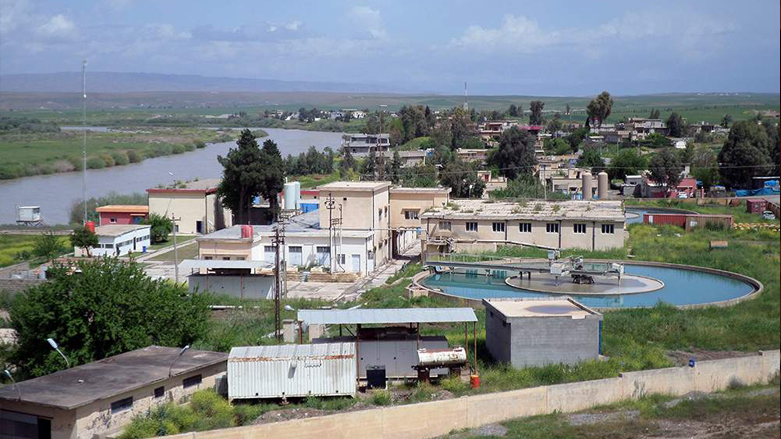To help manage water crisis, Erbil to build new major treatment plant: Official

ERBIL (Kurdistan 24) – As part of recent efforts to mitigate the root causes of current potable water shortages in the Kurdistan Region, the provincial government of Erbil has decided to build a new water treatment plant on the Greater Zab River, according to one official.
The decision comes as the city’s residents have been facing water shortages in the middle of a scorching summer due to a region-wide drought, in combination with several other issues of groundwater depletion and water supply, processing, and distribution.
As an initial temporary fix, local authorities working in concert with some local philanthropists and charity organizations have distributed some 1.5 million liters of potable water by tankers on a near-daily basis to the water-scarce regions and households in the province, Deputy Governor Masoud Karash told Kurdistan 24.
The regional capital’s cities, towns, and neighborhoods rely on wells inside the province and water treatment plants on the Greater Zab River to access clean water and for both household use and irrigation. Erbil already has three treatment plants on the basin, commonly known as Ifraz 1, Ifraz 2, and Ifraz 3, which combined provide about 60 percent of local supply.
Recent floods in Turkey have increased the turbidity, or dirt and silt content, of the Zab, which originates from southeastern Turkish mountainous areas before flowing into the Tigris River over its southern border. This has caused water authorities to halt the treatment process until the water is back to its normal condition.
“In order to solve the water scarcity issue fundamentally, there will be built a new treatment plant on the Zab,” Karash said, adding that the plan is to rely on a higher percentage of surface water than from underground sources in the future.

Erbil Governor Omed Khoshnaw announced on Tuesday the start of a new campaign to dig underground wells in the province to help remedy the current water crisis.
Read More: Kurdistan Region approves emergency well-drilling plan to combat drought
Earlier, officials described the effect that water shortages have had on the annual state-run wheat marketing process for the current season's crop.
Read More: Drought ravages this year's wheat harvest in Kurdistan Region
Over the past weeks, newly harvested grain only partially filled silos across the Kurdistan Region, with agriculture officials having received less than the quantity specified by the federal government in Baghdad to be sufficient to support the region's farmers and food needs of the public.
"We decided to form teams to deliver water by tankers starting tomorrow," Governor Khoshnaw concluded at Thursday's press conference, "and the areas that will not be reached must contact the competent teams who will bring water to them."
Editing by John J. Catherine